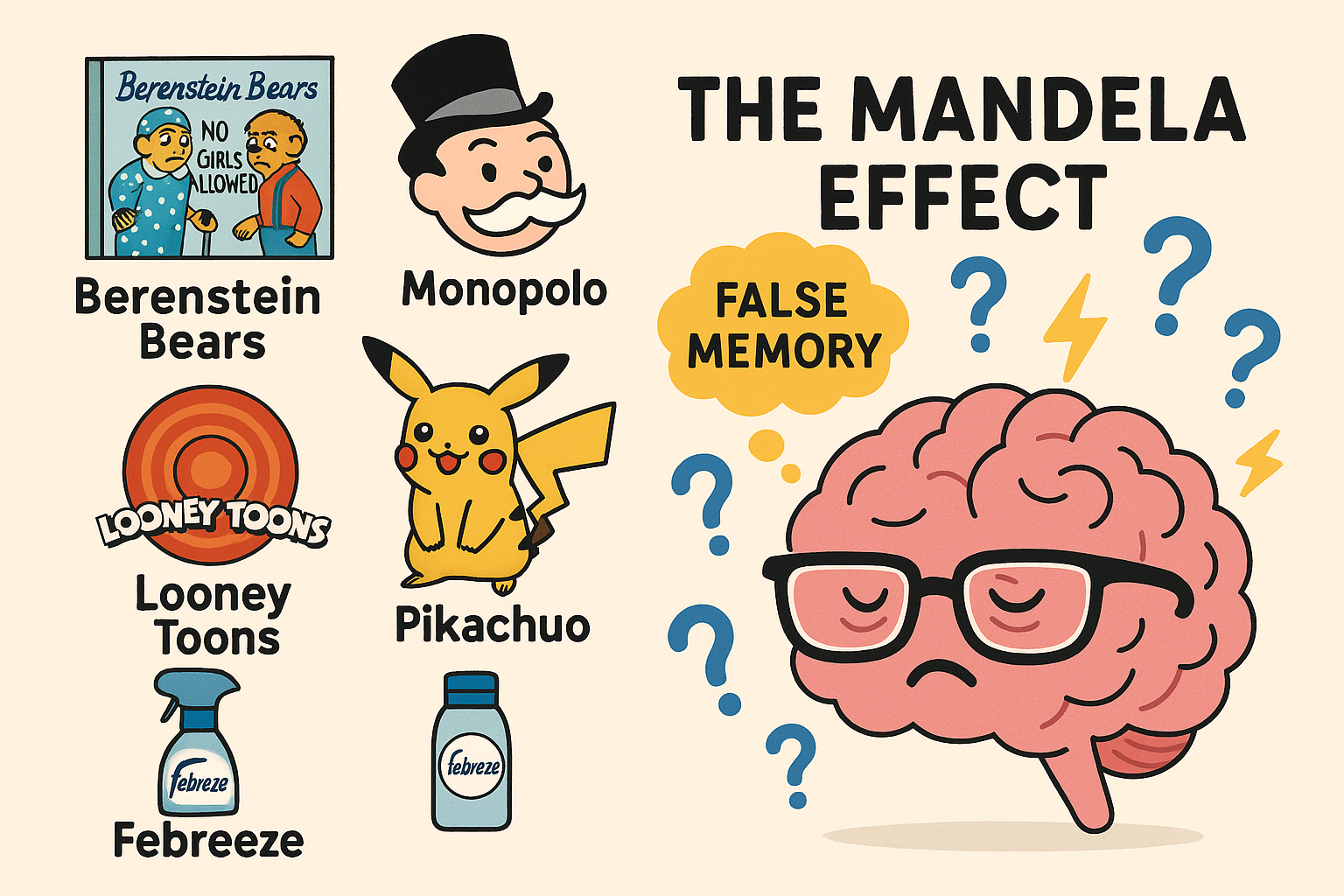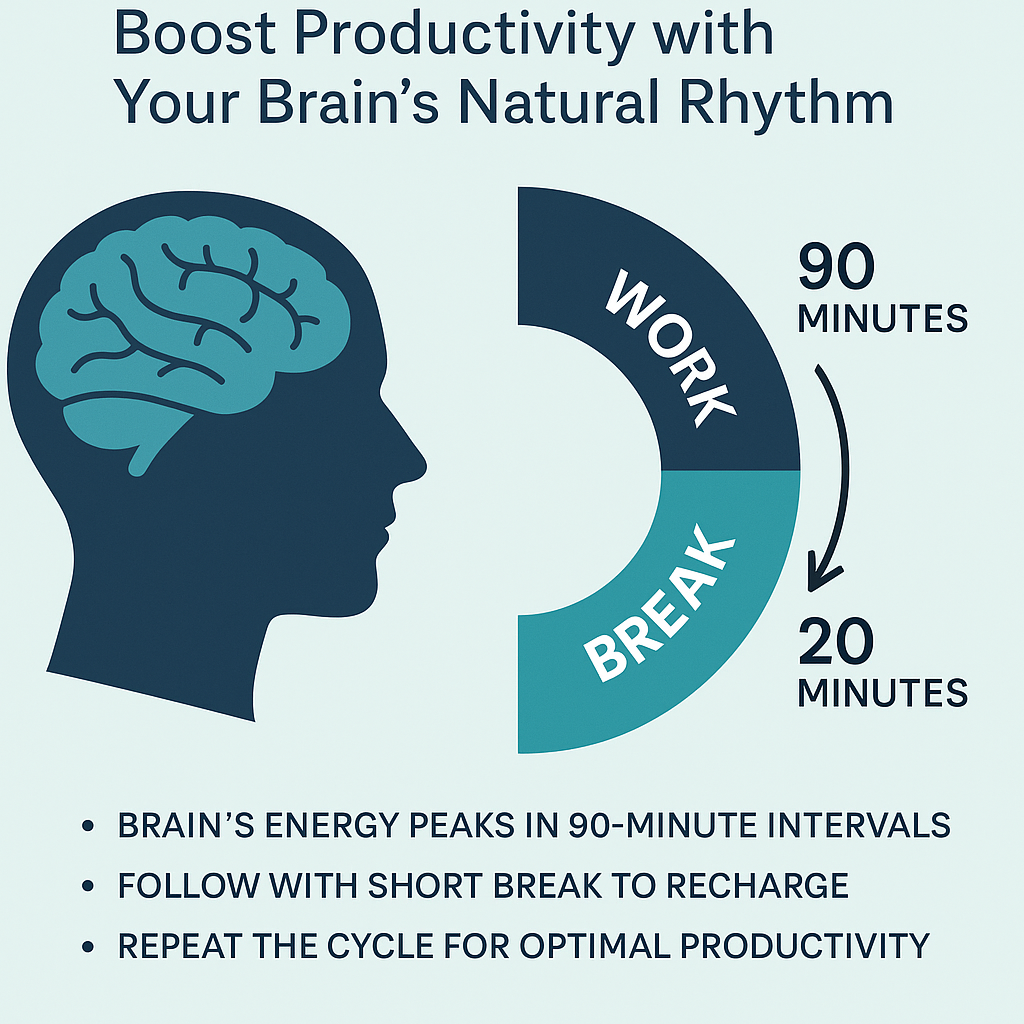minutes
🤔 What Is the Mandela Effect?
The Mandela Effect refers to a strange psychological phenomenon where large groups of people remember the same event or fact — incorrectly.
It was named after many people incorrectly “remembering” Nelson Mandela dying in prison in the 1980s, even though he passed away in 2013.
But that’s just the beginning…
📚 Popular Mandela Effect Examples
| False Memory | Reality |
|---|---|
| “Berenstein Bears” | It’s actually Berenstain Bears |
| “Looney Toons” | It’s Looney Tunes |
| “Febreze” with two E’s | It’s spelled Febreze (one E) |
| Monopoly Man has a monocle | He never did |
| Pikachu has a black tail tip | He never did |
These false memories are vivid, emotional, and widely shared — but completely wrong.
🧠 What Causes the Mandela Effect?
1. False Memory
Your memory isn’t a video camera. It’s a reconstruction — every time you recall something, your brain rewrites it slightly. Over time, these distortions grow.
🔬 Studies show that even confident memories can be false.
2. Social Reinforcement
When multiple people “remember” the same incorrect fact, it feels more real. Online forums and viral posts can reinforce these collective falsehoods.
The more we see it, the more we believe it.
3. Confabulation
Your brain fills in missing details using logic or expectations.
Example: You assume the Monopoly man has a monocle because he’s rich — like Mr. Peanut.
4. Misinformation Effect
False information introduced after an event can alter memory.
Example: Watching a YouTube video claiming “Fruit Loops” used to be “Froot Loops” might trick your memory.
5. Schema Theory
We use mental frameworks (schemas) to organize knowledge. When something doesn’t fit — your brain auto-corrects it.
That’s why “Berenstein” sounds right — because names with “-stein” are more familiar.
👁️ Is It Just a Memory Thing — Or Something Deeper?
Some people believe the Mandela Effect is evidence of:
- Alternate realities
- Parallel universes
- Simulation glitches
While fun to imagine, there’s no scientific evidence of multiverse overlaps. But what’s real is how powerfully memory can deceive us.
🧬 What the Mandela Effect Teaches Us About the Brain
- Memory is malleable, not fixed
- Social belief systems can override personal experience
- Confidence ≠ accuracy when it comes to recall
- Your brain is designed to make meaning — even when it means making mistakes
This makes us not only curious thinkers but fallible observers of our own reality.
🎯 Why This Matters (Especially for Students & Creators)
Understanding the Mandela Effect can:
- Make you a better critical thinker
- Help you fact-check before assuming you’re right
- Encourage skepticism when researching or creating content
- Boost awareness of cognitive bias in everyday life
💬 Final Thoughts
The Mandela Effect is a powerful reminder that what we remember isn’t always what happened. In a world flooded with information, understanding how memory works is more valuable than ever.
So next time someone swears the Monopoly Man has a monocle, ask yourself:
“Is this real — or just widely shared?”




